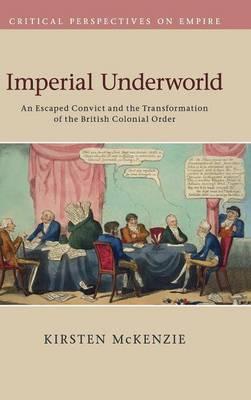The Department of History at the University of Sydney would like to offer warm congratulations to the History Department Prize winners, who received their awards at the annual SOPHI Prize Ceremony on Tuesday May 1. And thanks to award-winner Sarah Charak for her wonderful speech that evening. Given the hundreds of students in our history classes, and the quality of so much of their work, winning these prizes is a huge accomplishment. Again, many congratulations to all.
The winners were as follows:
A.E. (Tony) Cahill History Prize – Samuel Goldberg
Aisling Society of Sydney Prize for an essay on Irish or Irish-Australian History – Ciara Smart
Charles Trimby Burfitt Prize for the Study of Australian History Prior to 1900 – Jeanne Apolonio
Ernest Bramsted Prize for Modern or Medieval European History – Emily Paget
George Arnold Wood Memorial Prize for History I – Samuel Goldberg
George Arnold Wood Memorial Prize for History II – Xanthe Peta Robinson
George Vari Prize For History And Medieval Studies – Jemimah Back and Nicole Leong
GS Caird Scholarship in History II – Colin Taylor
Helen Newbon Bennett Memorial Prize for Senior History – Pola Cohen
History Department Prize for outstanding work in HSTY3901 – Alison Lee
History Department Prize for outstanding work in HSTY3902 – Sarah Charak
History Department Prize for outstanding work in HSTY3903 – Sally Ghattas
History Department Prize for an outstanding essay on a subject relating to social justice and/or social inclusion – Ashleigh Taylor
Isabel M. King Memorial Prize for History III – James Collier and Daniel Swain
J.H.M. Nolan Memorial Prize for Proficiency in History – Sarah Charak – Student speaker
Maud Stiles Memorial Prize in Senior History – Radha Wahyuwidayat
Philippe Erdos Prize in History – Alexander Jackman
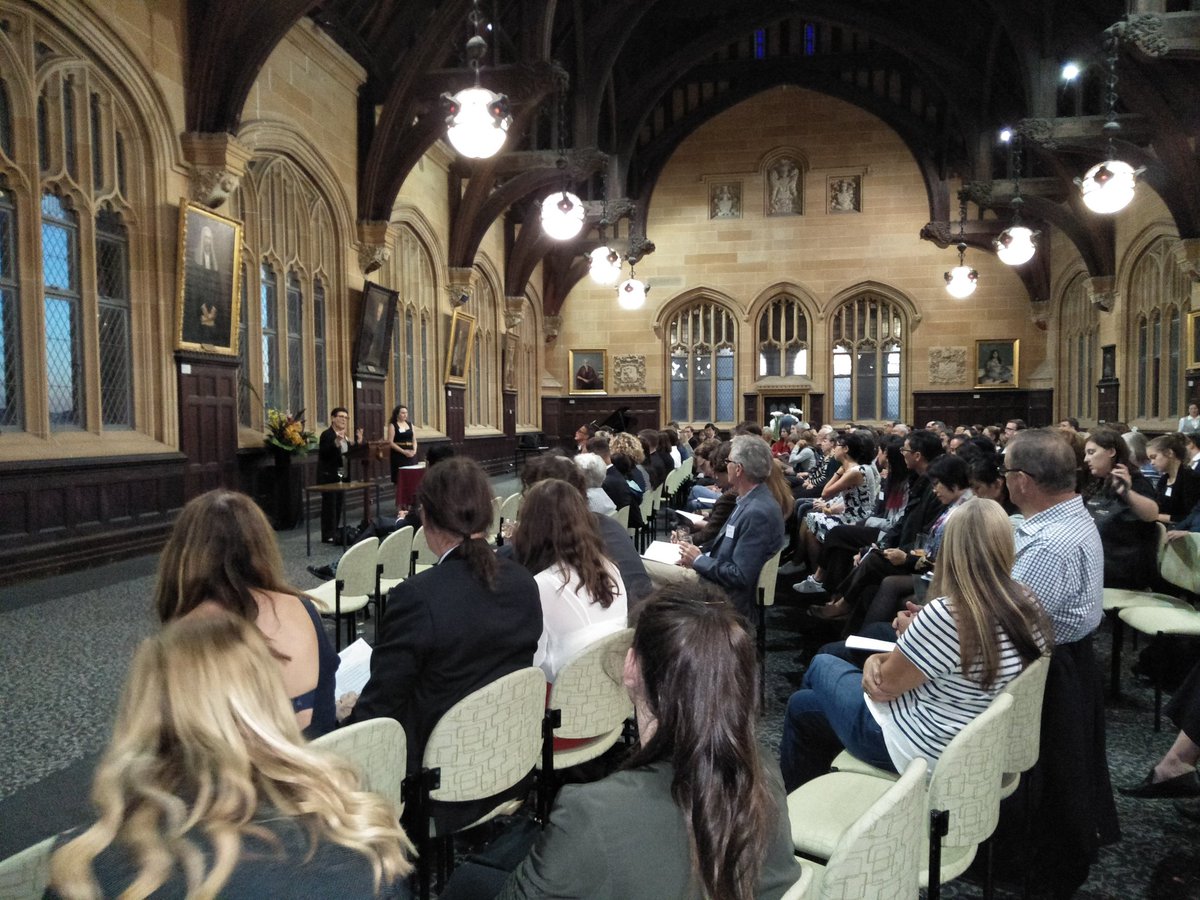
Category: Department News and Events
History Workshop – A New Era in History at Sydney
In March 2018, new undergraduate students at the University of Sydney will be taking part in a bold experiment in history education, where they will begin unravelling the racial dynamics of depression-era La Perouse or the crackdown on communists in 1920s Shanghai.
As part of the University’s reimagined undergraduate curriculum, the Department of History has developed new units of study about world history and a new unit unlike any other taught in an Australian university: HSTY1001 History Workshop.
Read more
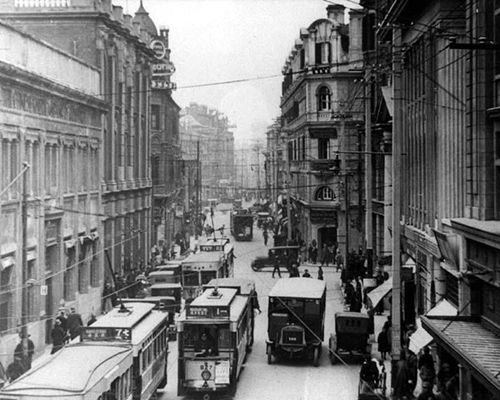
New Staff and Teachers for 2018
Dear Historians,
This semester we welcome some familiar faces to new roles in the department, and one new colleague who’ll be with us for the academic year.
Dr Aminat Chokobaeva joins us from the ANU. She’ll be teaching HSTY2659 Nationalism in semester 1 and HSTY2613 Russia’s Revolutions in semester 2.
Dr Emma Barron, who earned her PhD in the department in 2016, is returning to teach HSTY2608 European Film and History.
Ben Vine, who has just submitted his PhD thesis, is teaching HSTY2666 American Revolutions.
Dr James Dunk, who has been working in REGS for the last few years, is teaching HSTY2304 Imperialism.
Dr Mick Warren, who will be in Mark McKenna’s office while Mark is away this year, is teaching the Great Barrier Reef OLE and a winter intensive in Australian history.
Minerva Inwald, who is holding a FASS teaching fellowship this year, is teaching a seminar in HSTY1001.
Welcome, everyone. It’s great to have you with us.
Chris
CHRIS HILLIARD | Professor of Modern British History
Chair, Department of History | Main Quadrangle A14
The University of Sydney | NSW 2006 | Australia

Department of History Seminar Series, Semester One 2018
Dear colleagues and friends of the History Department, University of Sydney
In 2018 our departmental seminar will be moving to a different day of the week and will be held at intervals across the semester rather than weekly. The venue remains the same. Details of this semester’s program for History on Wednesday can be found below and the full program is on the web here:
Seminar Series for Postgraduates and Faculty
Held at 12.10-1.30
in Woolley Common Room, Woolley Building A22
(Enter Woolley through the entrance on Science Road and climb the stairs in front of you. Turn left down the corridor, and the WCR is the door at the end of the hall)
Coordinators:
Dr Andrés Rodriguez and Professor Kirsten McKenzie
Semester 1 2018
7 March
Marco Duranti (University of Sydney)
French Colonialism and International Human Rights after 1945
21 March
Peter Hobbins (University of Sydney) and Elizabeth Roberts-Pedersen (University of Newcastle)
False horizon: historical data, the psychology of risk and the politics of safety
18 April
Penny Russell (University of Sydney)
Family Business: Love and Money in Colonial Sydney
2 May
Paul Betts (Oxford University)
Red Globalism: Eastern Europe, Decolonization and African Heritage
16 May
Elizabeth Manley (Xavier University of Louisiana)
Created by God for Tourism: Developing Tropical Paradise in the Dominican Republic, 1966 – 1978
23 May
Chris Hilliard (University of Sydney)
Housing, Race and the Remaking of the English Working Class
Recent Completions
In February, Sarah Dunstan received word that she had successfully passed her PhD. Sarah’s dissertation, completed under the direction of Shane White, is entitled “A Tale of Two Republics: Race, Rights, and Revolution, 1919-1963.” Her reports were unanimous that the dissertation needed no more revision and was ready to be accepted immediately. One reviewer noted that ” This is an extraordinarily ambitious study, which addresses multiple histories, multiple historiographies, and multiple scholarly audiences,” while another pointed to how “she skillfully distributes (her research)…through an ambitious synthetic narrative that spans most of the 20th century and encompasses a wide range of actors, movements, ideologies, debates and events not only in France and the United States but in French Caribbean and African colonies as well.” A glimpse of some of her work can be found in a recent blog post she wrote for the Journal of the History of Ideas. Please join us in congratulating Sarah.
Many congratulations to Sarah Anne Bendall for the successful submission of her Ph.D. thesis, entitled “Bodies of Whalebone, Wood, Metal, and Cloth: Shaping Femininity in England, 1560-1690,” which she completed under the direction of Dr. Julie Ann Smith. Sarah’s reviewers were universally impressed by her research and writing, with one noting the thesis “is sophisticated, wide-ranging and highly ambitious in scope,” another calling it “one of the best I have read to date,” while the third heaped praise on her nuanced argument and substantial research. Some of the innovative work she did for her thesis can be found on her blogsite. Please join us in congratulating Sarah on her incredibly impressive achievement.
Snapshots of Empire – Lecture and ECR workshop
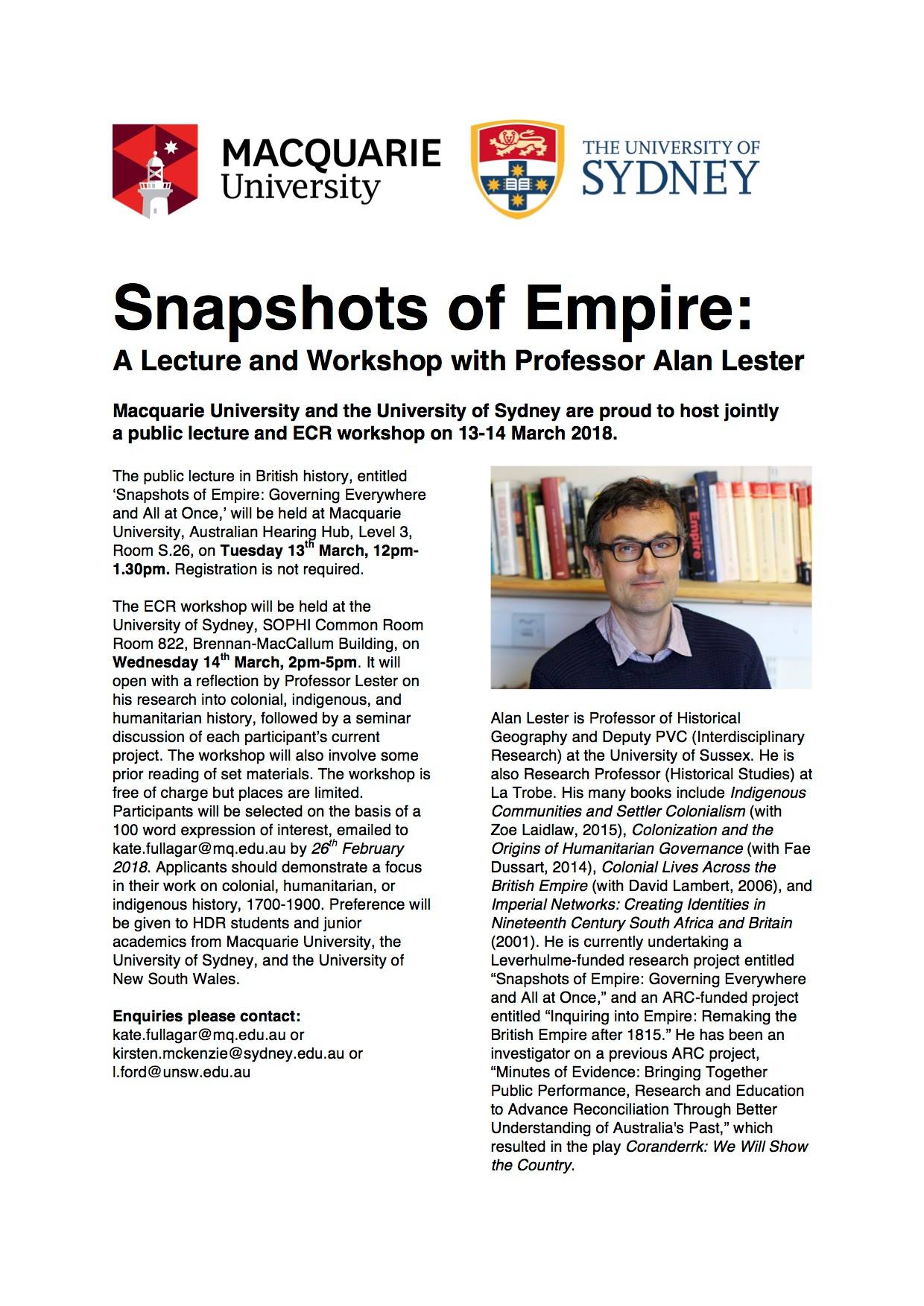
Congratulations to Ben Silverstein
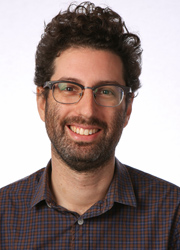
Congratulations to Ben Silverstein, who will be taking up, from March 2018, a five-year PDRA position in Ann McGrath’s Laureate Fellowship programme, based at the ANU. Ben will be working on a project titled ‘Rediscovering the Deep Human Past’ that will expand the scope and scale of studies of Australia’s ‘long history’. In particular, he will collaborate with scholars in other disciplines as well as Indigenous community groups to map and track deep histories in landscapes. Additionally, in 2018 the two books he has worked on here at Sydney will appear: an edited collection, Conflict, Adaptation, Transformation: Richard Broome and the Practice of Aboriginal History (Aboriginal Studies Press); and the monograph: Governing Natives: Indirect Rule in Settler Colonial Australia and the British Empire (Manchester University Press).
While he will be missed here at Sydney, we wish him all the best for this exciting opportunity.
Promotions in the Department of History
Many congratulations to our trio of new Senior Lecturers: Chin Jou, Miranda Johnson, and Marco Duranti. Their promotions were announced today.
All three published path-breaking and well-received books over the past year (or so). Details of them can be found here, and here.
And a sampling of some of the reviews can be found here.
In addition to their published work, all three are dedicated and innovative teachers and supportive colleagues. Well done to all.
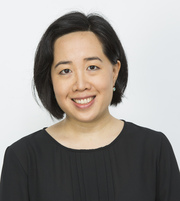


Historians in the News
Professor Kirsten McKenzie was elected a Fellow of the Australian Academy of the Humanities.
Dr. Miranda Johnson weighed in on the Australia Day debate by talking about the ongoing legacy of settler-colonialism with the international online magazine, OZY.
ARC Research Fellow Ben Silverstein won the History Australia and Taylor & Francis best article for 2017.
PhD students Hollie Pich and Marama Whyte have both won Endeavour Awards to undertake research in the U.S. in 2018. These highly-competitive awards are provided by the Australian government to scholars engaging in study, research, or professional development overseas. Marama has been granted the Endeavour Postgraduate Scholarship to conduct 6-12 months of research at New York University, sponsored by Professor Thomas Sugrue, while Hollie has won an Endeavour Research Fellowship to conduct 4-6 months of research at Duke University, sponsored by Professor William Chafe.
Marama Whyte has also won the Tempe Mann Travelling Scholarship for 2018, which is awarded by the Australian Federation of Graduate Women-New South Wales, taking up an honour that Hollie held the year before.
Professor Glenda Sluga recently presented at the Graduate Institute Geneva on the history of global governance of the environment. For the Geneva report on this talk click here. Glenda is also cosponsor of this Cambridge conference on the global history of sovereignty and natural resources. This was the winning concept in an international competition. A copy of the poster is available here, and you can download the final program here. The Guardian also reported academics from around the world including Professor John Keane from the Department of Government and International Relations and Professor Glenda Sluga from the Department of History are rallying in support of Dr Maha Abdelrahman, a Cambridge University scholar whose PhD student Giulio Regeni was murdered in Egypt.
The New Republic (US) discussed Dr Chin Jou’s new book, Supersizing Urban America about fast food and obesity, and she was interviewed by KPFA Radio (US) about it. Dr. Jou also wrote a piece on the global expansion of the fast food industry in the Washington Post.
University of Sydney PhD student Emma Kluge has a new piece on the UN History website on Decolonization Interrupted: U.N. and Indonesian Flags Raised in West Papua
Channel 7 (Sydney, Perth, Melbourne, Brisbane) interviewed Dr Miranda Johnson from the Department of History about broadcaster Stan Grant’s calls to change a statue of Captain Cook in Hyde Park.
Dr. Marco Duranti’s The Conservative Human Rights Revolution and Prof Mark McKenna’s From the Edge were longlisted and shortlisted respectively for the CHASS Australia Book Prize 2017.
Dr. Duranti was also interviewed on ABC Radio National about the human rights revolution born in a conservative UK after World War II.
Dr Sophie Loy-Wilson was interviewed on ABC Radio National about Australian migration to China and the story of Daisy Kwok, a Chinese-Australian socialite who was born in Sydney and moved to China in 1917.
Dr. Ivan Crozier and Dr. Peter Hobbins have both spoken recently in the University of Sydney Rare Books ‘Rare Bites’ series of lunchtime talks, which they video, caption and upload to YouTube: Peter Hobbins speaks on Researches on Australian Venoms (1906); Ivan Crozier speaks on Sexual Inversion (1897), and Dr. Hobbins featured on an episode of ABC TV’s Hard Quiz, and co-authored an article published on The Conversation about misconceptions around the fatality risks of snakebites.
Professor Dirk Moses recently wrote about the pros and cons of “flipping” the classroom in a large first year unit in Teaching@Sydney.
Professor Sheila Fitzpatrick authored an article published in the Australian Financial Review about the 100 years since the Russian Revolution, and she was interviewed by ABC Radio Melbourne about her new book, Misckha’s War.
Professor Mark McKenna from the Department of History was quoted in the Daily Telegraph about Australia’s historical monuments, and he also wrote a review of Donald Horne: Selected Writings, published in the Weekend Australian.
Sky News interviewed Professor James Curran from the Department of History about US President Donald Trump’s reaction to the events in Charlottesville and was interviewed on ABC Radio Sydney, 2SM Sydney and Sky News about the history of the ANZUS alliance in light of the Prime Minister confirming Australia would join US military action if North Korea were to attack. Professor Curran also wrote an article about what the ANZUS treaty obliges, published in the Australian Financial Review, and another in the Australian Financial Times about Australia’s ongoing alliance with the US during the Trump presidency. Weekend Australia published an article by Professor James Curran from the Department of History and the United States Studies Centre about how US President Donald Trump has intensified the cultural crisis gripping the US. CNN (US) quoted Professor James Curran from the Department of History and the United States Studies Centre about the federal government’s foreign policy white paper. The Saturday Paper quoted Professor James Curran about the Foreign Minister’s relationship with US diplomats. The Straits Times (Singapore) quoted James Curran about the resurrection of the quadrilateral security dialogue between the US, Japan, Australia and India.
The Star Tribune (US) quoted Professor Robert Aldrich from the Department of History about his research on French colonialism, while the National Post (Canada) quoted him in a story about increased attendance at the National Museum of the History of Immigration in Paris following the 2015 terrorist attacks in France.
Professor Ian McCalman from the Department of History and Co-Director of the Sydney Environment Institute was interviewed on ABC Radio National’s Conversations with Richard Fidler.
9news.com.au quoted Emeritus Professor Richard Waterhouse from the Department of History about Remembrance Day.
Professor Shane White from the Department of History published a review of The Origin of Others by Toni Morrison in the Sydney Morning Herald. The review was syndicated across Fairfax Media.
ABC Radio National interviewed Professor Sheila Fitzpatrick from the Department of History about the Bolshevik revolution.
Dr Thomas Adams featured on ABC’s The Drum discussing a number of topics including the Manhattan terrorist attack and US President Trump’s comments following the event.

Scandals and Historical Curiosity
In this blog entry, Professor Kirsten McKenzie reflects on the utility of studying historic scandals. Her thoughts are drawn from the presentation she gave at a plenary session on Historical Curiosity at the recent History Postgrad Conference, “The Past and the Curious” in November 2017.
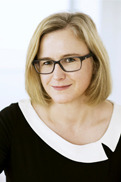
Historical Curiosity
I’ve taken inspiration from the theme of this conference in two ways – firstly, what use can we make of curious incidents in the past? And, secondly, how do we deal with our own curiosity about them?
I’m still not entirely sure whether this is by accident or design but I’ve come to realise that much of what I research can be classed as ‘curious’. I don’t mean in the sense that the past is another country, and what might seem odd to us was not so previously. These are events and personalities who were considered downright weird at the time. My two most recent books are both about convict impostors in the first half of the nineteenth century, although their impersonations were undertaken with very different motivations and effects.
One, the improbably named John Dow, was a con artist seeking gain through identity theft. The other, who began his life as Alexander Kaye and ended it as William Edwards, was an escapee trying to hide under a false name. Both got caught. Neither would admit their guilt. In the case of Edwards the mystery persisted even after the prisoner took his own life. These cases excited much curiosity and debate in their own time, even if they were largely forgotten afterwards. When remembered, they were never considered the proper subjects of serious history.
By their very nature, Dow and Edwards were serial liars. Their actions confounded observers at the time, several of whom described them as insane. Much of their story remains unknowable. This brings me to my second point – what do we do, as historians, with our curiosity about the past. How should we direct that curiosity?
When I was sitting where you are now – and in the last year of my PhD – I gave a presentation at a large international conference where the papers were pre-circulated and where Ann Stoler was the keynote speaker. For those not in my field, Ann Stoler is one of the big names in imperial history, and was already an academic superstar in the late 1990s. So, you can imagine how I felt when mine was the paper she singled out for praise and discussion as part of her keynote address.
When I had found the material on which the paper was based, I knew it was a huge coup – I was writing a thesis about questions of gender and honour and I had found a cache of papers about alleged incest and concealed pregnancy involving the Chief Justice of the Cape Colony, Sir John Wylde, and his daughter Jane. The day I came upon the papers saw me quite literally shouting aloud with joy in the car all the way home from the archive. Which seems a bit sick when you consider the contents of the material itself.
But this wasn’t why Stoler singled out my paper for praise – she admired what she called (and I can still remember the gist 20 years later) my ‘postmodern determination’ not to become caught up in the solution to the story, but rather to leave the mystery unresolved. Instead of putting what had happened to Jane Elizabeth at the center of my analysis – was she the victim of rape or incest? had she killed her own child? had she had a lover whom it was somehow impossible to acknowledge? – I had focused in the paper on the wider significance of the scandal for understanding Cape colonial society – how it related to debates over slave emancipation, the press, and the nature of gendered discourse in public and private.
My immediate thought when I heard Stoler’s comment on my paper was – ‘well, I’m glad this great scholar thinks I have postmodern determination, I better start pretending I’ve GOT postmodern determination because the reality is that if I could have solved the mystery from the sources available I would gleefully have done so.’
I mention this as a foundation story in my career not only because it pointed the way to the historian I would become – one who specialised in scandal – but also because it took the process of writing several books to work through quite how incisive Stoler’s comment was to how we should approach the phenomenon of scandal. Indeed, she likely didn’t realise herself the significance of what in retrospect was probably just an off-hand remark.
If historians want to understand the kind of everyday attitudes that are the focus of cultural history, why work on scandals? They are surely unusual events by definition? But, of course, some people are scandalous, only if others are not. So, they allow us to see where the lines of acceptable and unacceptable behaviour are drawn and constantly renegotiated.
Secondly, they generate extensive sources and articulate what are often unspoken assumptions about proper behaviour. Scandals can also have important effects in bringing about social change – they can involve the rise and fall of public figures, they can have concrete political effects by bringing unacceptable behaviour under public scrutiny. They can be used by the powerless to shame and expose the powerful. They can be used as political traction to bring about desired outcomes, often only peripherally related to the original scandal itself. All of this is inherently unstable and unpredictable – scandals are extremely difficult to manipulate. They often start out as being about one thing or person and end up being about something quite different. The scandal of John Wylde and his daughter is a textbook example of this.
For all these advantages, the historian of scandal must be prepared to have her curiosity frustrated. She must always face the prospect of suffering what the novelist A.S. Byatt calls ‘narrative greed’ – and of accepting that this greed will not be satisfied. This is not to say that narrative is a bad thing – but it isn’t the only thing. There is always the search for the good story when writing about scandal, the satisfaction of finding out ‘what happened’, of marshalling all the twists and turns of plots and sub-plots.
It is notable how often historians of scandal use the language of plots, or of drama when they are setting the scene. We need to be honest about the narrative pleasures of this sensationalism. There are very good reasons why we might want to know what happened. But as I tell my students in the unit ‘Sex and Scandal’, some really bad history – often for general audiences – can be written about scandals in the name of telling stories. This risks not only being bad quality, but having bad effects, simply interested in the prurient details, details that are taken for granted and sensationalized, with no attempt to understand what it all means.
It is worth mentioning that I found the Wylde material (marked as “under restricted access”) with the help of a very experienced archivist – and he said quite explicitly that he had only brought it to my attention because he knew my scholarship and he was satisfied that I would deal with it responsibly. (I’m glad he didn’t see me shouting in the car on the way home.) Our curiosity is natural, and important in getting things right, but it is important not to become caught up in a historian-as-detective approach when dealing with scandal. This is not CSI Archive. Sometimes the best solution is to set aside one’s natural curiosity to discover a secret – or to become curious about something else.
Let me end with an example of this from my most recent book. One of the most challenging parts of writing Imperial Underworld was addressing an incident in the life of William Edwards that has been written about numerous times – but never in a scholarly way. This involved a notorious scandal that was intensively investigated at the time – without a satisfactory solution. An anonymous placard was posted on the streets of Cape Town accusing the Governor, Lord Charles Somerset, of “buggering Doctor Barry”. No copy survives. Various accounts of its wording exist. There were even doubts expressed as to whether it had ever really existed, for only one person admitted to having seen it before it disappeared.
William Edwards was the chief suspect, but nothing was ever proved against him. The incident has sparked intensive curiosity amongst popular historians, particularly those writing about Barry, whose sex remains a subject of debate. Serious scholars, however, have shied away from the incident – unable to find an analytical purpose for it, even though it took place in the midst of an intensively studied period of Cape history.
What should spark our curiosity about the placard affair – what questions should we be asking about it as historians? ‘Narrative greed’ leads us to two obvious ones – were Somerset and Barry engaged in sexual relations? And, who put up the placard? The answer to the first question has eluded countless biographers of both Barry and Somerset. For what it is worth, a recent book on Barry has uncovered some persuasive evidence that the doctor was born female though that leaves us no further ahead on the question of relations with Somerset. And with regard to the second question – \who put up the placard – the historian has access to only the same evidence, admittedly voluminous, that was collected in the original case. Can she expect to succeed where a determined public prosecutor under intense political pressure failed some 200 years earlier?
I didn’t consciously think of Ann Stoler’s comment while I wrestled with how to write about the placard scandal in a useful way. Nevertheless, her response to that paper on the Wyldes some 20 years ago doubtless had a role in helping me to work out how I approached this problem. For my purposes, the scandal’s utility lies precisely in recognising its tenuous hold on reality – using that as the object of my analysis rather than an obstacle to my analysis – and in tracing the tactics of ideological warfare that broke out in its aftermath.
As a way of understanding the processes of imperial reform debates, my interest was more in the political management of the scandal than in the alleged sexual improprieties of Lord Charles Somerset and Dr James Barry or the identity of the persons who claimed to have brought them to light. If we look carefully at the sources we can see what was very clear to contemporaries but what historians have missed. What was most significant about the incident was not the contents of the placard itself but the “political ends” – in the words of contemporaries – to which its existence could be put. Despite the dangerous accusations allegedly made in the text (remember our evidence that the placard even existed is tenuous) sex drops out of the public discussion remarkably quickly. What ensues is effectively a public relations struggle between Somerset and his political opponents in both Britain and the Cape, a debate that revolved not around his sexual misconduct but around his tactics of information gathering and the use of spies. Historians can and often should use scandals to ask and answer different questions from the ones that preoccupied those living through them. Because after all, what we are most curious about is working out methods to understand the past as best we can.
